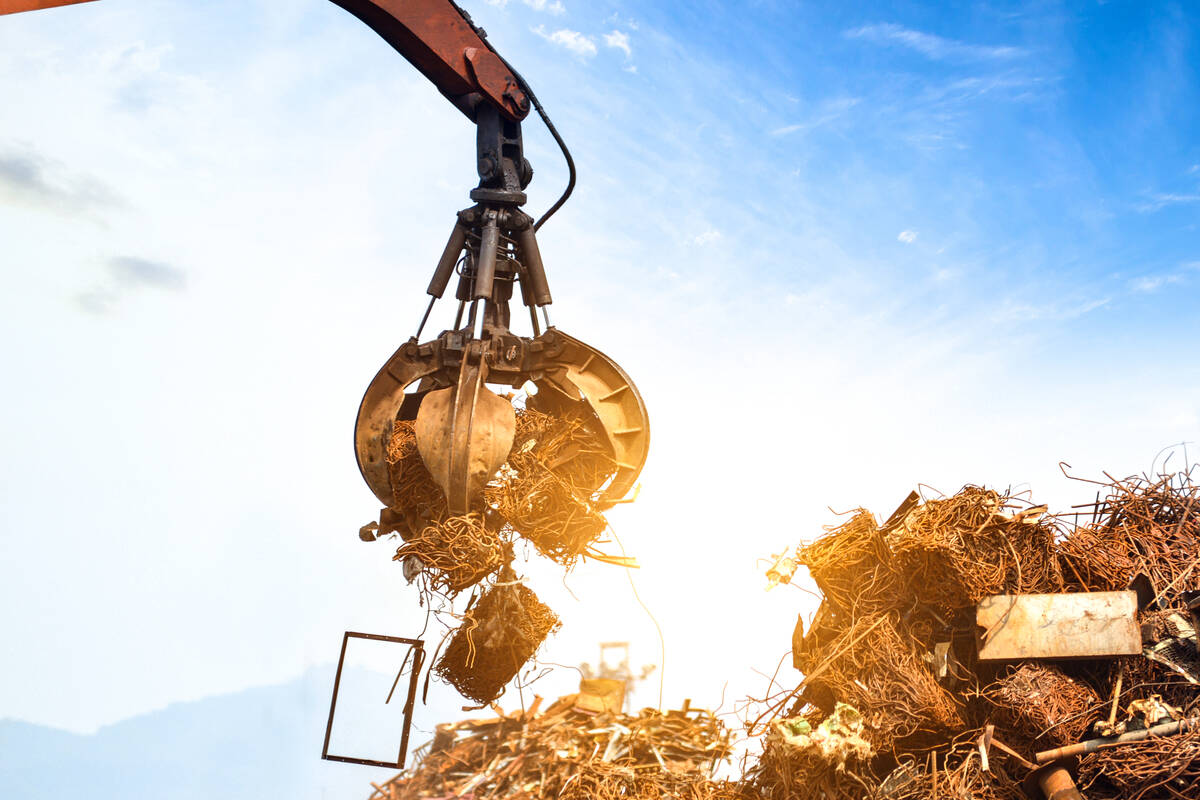The construction industry plays a critical role in the Italian economy, employing over 3 million people and contributing over £110 billion to the country’s gross domestic product (GDP). Notwithstanding the obstacles presented by the epidemic, the industry has demonstrated resilience and growth. Indeed, the construction company in Italy is currently placed sixth globally, and data from recent years indicates that the sector is expanding once more.
U.S. exporters are very interested in Italy, which has the 12th largest global construction market outside of the United States. Although they may not always meet Italian requirements for aesthetic design—which is crucial even for materials and components that end users do not often see—U.S. building products are known for their quality and dependability in Italy. Because the construction company in Italy views itself as a global leader on par with the US industry, it is open to considering novel or innovative goods and solutions.
End users, the public sector, and Italian businesses are becoming more and more interested in sustainability. Products with high “green” performance characteristics have opportunities in areas like improving indoor air quality and saving energy and water. The LEED guidelines of the Green Building Council, which have their roots in the United States, are becoming increasingly popular in Italy and are being considered by many architects when designing new, energy-efficient buildings. The goal of the European Green Deal is to increase the energy efficiency of both public and private buildings. Another factor driving the demand for more energy-efficient buildings is the rise in the number of Italian businesses applying ESG (Environmental, Social, and Governance) standards.
Table of Contents
Construction Company in Italy Segmentation by Sectors
Commercial construction, industrial construction, infrastructure construction, energy and utilities construction, institutional construction, and residential building are the main segments of the Italian construction market.
Commercial Construction: This industry’s project types include office buildings, retail stores, outdoor recreation centers, leisure and hospitality structures, and other commercial developments. Throughout the projection period, investment in retail, office, data center, and leisure and hospitality facilities will propel the expansion of the commercial sector.
Industrial Construction: This field includes waste processing facilities, manufacturing facilities, chemical and pharmaceutical plants, and facilities for the production and processing of metals and other materials. Growth in the sector will be driven by the development of automotive manufacturing projects starting in 2025.
Infrastructure Construction: The project types in this sector include rail infrastructure, road infrastructure, and other infrastructure projects. The nation’s transportation infrastructure will be developed with funding from the National Recovery and Resilience Plan (PNRR). Throughout the projection period, this will help the sector’s growth.
Construction Related to Energy and Utilities: Project categories in this field include telecommunications, sewage and water infrastructure, oil and gas, and electricity and power. The expansion of the sector between 2024 and 2027 will be propelled by the government’s emphasis on the building of energy infrastructure, especially renewable energy infrastructure.
Institutional Construction: This industry encompasses research facilities, religious buildings, educational buildings, healthcare buildings, and institutional buildings. From 2025 to the end of the forecast period, investments in projects related to education, healthcare, museums, and research buildings will drive the expansion of the institutional construction sector.
Residential Construction: This industry consists of both single-family and multi-family dwelling projects. Investments in housing developments by the public and private sectors will propel the sector’s expansion starting in 2026.
7 Top Construction Company in Italy
Here is a list of 7 top construction companies in Italy worth knowing about:
1. Saipem
The industry leader in oil and gas construction is the Italian engineering and construction firm Saipem. Established in 1957, the company has activities in more than 70 countries worldwide, with its headquarters located in Milan, Italy. Formerly, Saipem was a division of Eni, an Italian energy provider.
Drilling services, floating production units, offshore and onshore engineering and construction, and drilling services are among the business segments in which Saipem works. The majority of its building activity and income comes from offshore engineering and construction combined.
This construction company in Italy’s considerable experience in the planning and building of subsea infrastructure, pipelines, and offshore oil and gas platforms is one of its advantages. Additionally, Saipem has a track record of completing big, complicated projects in difficult settings like deepwater and the Arctic.
The business must contend with competition from other engineering and construction companies, especially those in Asia, whose lower labor costs enable them to offer lower prices.
Saipem has been concentrating on expanding its business into infrastructure and renewable energy projects to overcome these obstacles. The corporation has been aggressively chasing contracts for infrastructure projects like ports, roadways, and airports, in addition to offshore wind and geothermal energy projects.
2. Webuild
Large-scale infrastructure projects are the area of expertise for the Italian engineering and construction firm Webuild (previously Salini Impregilo). The business was established in 2014 as a result of the union of Salini and Impregilo, two organizations with extensive backgrounds in engineering and construction.
This construction company in Italy is involved in multiple business categories, such as energy, infrastructure, and civil engineering. The business is well renowned for its proficiency in building huge, intricate infrastructure projects, including roads, bridges, dams, and tunnels.
This construction company in Italy’s proven ability to complete big projects on schedule and within budget is one of its advantages. Numerous well-known projects, including as the extension of the Panama Canal, the Genoa Bridge in Italy, and the Riyadh Metro in Saudi Arabia, have been effectively completed by the corporation.
Webuild operates in more than 50 countries, giving it a global reach as well. A sizeable amount of the company’s revenue comes from its overseas businesses, which also have a solid track record of adjusting to regional laws and market situations.
3. Maire Tecnimont
An engineering and technology company with headquarters in Italy, this construction company in Italy offers a range of services for the infrastructure and energy industries. With a presence in over 40 countries, the corporation is a global player, listed on the Milan Stock Exchange.
The two primary business segments of Maire Tecnimont are Technology & Licensing (T&L) and Engineering & Construction (E&C). The E&C section is responsible for the engineering, design, and construction of infrastructure and industrial plants for a range of industries, including renewable energy, petrochemicals, and oil and gas. The T&L sector offers clients in the same industries proprietary technologies under license.
In terms of geography, this construction company in Italy is active in Europe, the Middle East, Africa, and Asia Pacific. The energy and infrastructure industries, where the company is well-positioned for significant expansion in the upcoming years, are markets in which it is well-established. Furthermore, the company has established a robust network of alliances and joint ventures with regional businesses across multiple nations, enabling it to capitalize on local knowledge and grow its operations.
To grow its business in the energy transition space, this construction company in Italy has chosen a strategic course that centers on solutions for the circular economy and renewable energy. The corporation has already accomplished a great deal in this regard with several solar and wind-generating projects. Additionally, the corporation has embraced a sustainable business strategy, placing a high priority on environmental, social, and governance (ESG) considerations in all aspects of its operations.
Other international engineering and technology companies including TechnipFMC, Fluor, and Saipem compete with Maire Tecnimont. Nonetheless, the company has a competitive edge in the changing market thanks to its strong market presence in the infrastructure and energy sectors and its emphasis on renewable energy.
4. Bonatti
This construction company in Italy has made a name for itself as a major participant in the world of oil and gas. The company’s international reach, solid financial standing, and energy industry experience are its main advantages. However, because of its lack of diversification and reliance on the oil and gas sector, Bonatti is also susceptible to market concerns.
To mitigate these risks, Bonatti can look for chances in the infrastructure development and renewable energy sectors. These prospects coincide with the rising need in emerging nations for infrastructure development and sustainable energy. By venturing into these domains, Bonatti might capitalize on its proficiency in the energy sector and broaden its sources of income.
The organization has created state-of-the-art technology and solutions to maximize project sustainability and efficiency. For instance, Bonatti International has created a modular construction method that enables pipeline and plant installation to be completed more quickly and effectively. In addition, the business prioritizes sustainability in its operations and has taken steps to lessen its impact on the environment and carbon emissions.
5. ASTM
This construction company in Italy is involved in several industries, including transportation and mobility technology, infrastructure engineering and construction, and motorway management. Their business approach incorporates a range of competencies that encompass every aspect of the infrastructure sector’s operations and value chain. With concessions over 6,200 km of managed road in Italy, Brazil (via EcoRodovias), and the UK, the Group is the world’s second-largest operator of toll roads.
SINA, the engineering division of the Group, and ITINERA, a major player in the development of transportation infrastructure and civil construction projects worldwide, handle the design and construction of large-scale infrastructure. Via Halmar International, ITINERA is also present in the US market.
Through SINELEC, a business that specializes in the design, development, and management of advanced security, info-mobility, toll-collecting systems, and ITS, the Group is involved in the technology sector. ASTM is under the management and coordination of Ardian, a private investment business, and Nuova Argo Finanziaria, a holding company under the administration of Aurelia – Gavio Group.
6. SICIM
This construction company in Italy offers engineering, procurement, and construction (EPC) services for infrastructure and power generation projects in addition to the oil and gas sector. Since its founding in 1962, the business has grown internationally, now operating in the Americas, Europe, Africa, the Middle East, and Asia.
This construction company in Italy has established long-term partnerships and contracts with significant clients including Eni, Shell, and BP because of its proven track record of completing complicated projects on schedule and within budget. The whole value chain, from design and feasibility studies to construction and commissioning, is covered by Sicim SpA’s expertise.
The organization has created cutting-edge solutions to maximize project sustainability and efficiency. For instance, Sicim SpA has used renewable energy sources to lessen the environmental effect of its operations and digital technologies to enhance project management and cut costs.
7. Impresa Pizzarotti & C.
This construction company in Italy, Impresa Pizzarotti & C. SpA has been in business for more than a century. The business offers a variety of services, such as infrastructure development, building construction, and civil engineering. The corporation has constructed highways, bridges, airports, and other infrastructure both domestically and abroad, among other projects.
The EPC general contractor has a solid track record of completing projects on schedule and has built a solid reputation for superior craftsmanship. Due to its experience and knowledge, the organization can take on challenging projects and finish them on schedule and under budget.
One of the first construction companies in Italy to receive quality system certification in 1996 was Impresa Pizzarotti & C. SpA. The company currently follows the UNI EN ISO 9001/2008 standard. This quality system has been integrated with work safety and environmental management since 2005. The business has received certification of adherence for both the “health and safety management system and organization OHSAS 18001/2007 standard” and the “environmental management system and organization” (UNI EN ISO 14001/2004).
This construction company in Italy worked to renew its qualification for the execution of public works under law DPR 34/2000 through Protos SOA SpA. This gives the corporation unrestricted permission to create and build up to an VIII grade classification in 26 separate categories, 19 of which have unlimited permission.
Conclusion
With a noticeable gain in market share, construction company in Italy has been one of the most important growth sectors in the Italian construction industry. Given that the government has pledged to make significant investments in the nation’s infrastructure in the upcoming years, this trend is anticipated to continue.
The NRRP of Italy allows €32.1 billion for sustainable mobility, which includes funds for the completion of rail freight corridors and the integration of other regions into the high-speed rail network. The strategy aims to enhance environmentally friendly local transportation by expanding bike lanes, metros, trams, and zero-emission buses. This entails building hydrogen refueling facilities for automobile and train transportation as well as electric charging stations across the nation. Additionally, funds are allocated to “green” Italy’s ports. American businesses that have the goods, services, and expertise to improve logistics and transportation and make them more sustainable and intelligent may have opportunities.
Between now and 2026, Italy plans to invest €9.2 billion to upgrade and expand its ports. A significant portion of this funding is intended for dredging, new breakwaters, and enhanced connectivity to road and rail networks to expand the size of ships that Italy’s principal container ports can accommodate. Additional funding will go toward digitalization-based initiatives that will increase port security, efficiency, and sustainability. This increased public spending may help American businesses who have creative ideas in these fields.
Suggested article for reading:
Top 7 Construction Company in Netherlands
Top 7 Construction Company in Malaysia; 2024 Review
Top 7 Construction Company in Luxembourg
Resources:
Trade | Statista | GIIResearch | MordorIntelligence | Linkedin | BlackRidgeResearch | GlobalData
For all the pictures: Freepik
Related Posts
May 19, 2024
5 Strategies of Change Management Resulted by Digitalization (2024)
Let's discover how to Accomplish Desired Results, Change Management is the…
May 18, 2024
What is Scan2BIM Process Steps (2024)
Let's Investigate how Scan2BIM Models are Very Helpful for Topographic…
May 17, 2024
Automatic Waste Sorting in Construction; 2024 Guide
Discover the Transformative Potential of Automatic Waste Sorting in…








